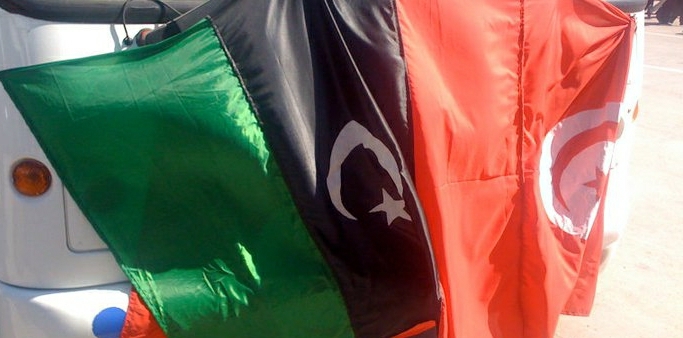By Libya Herald staff.

Tripoli, 12 June 2015:
Gunmen stormed the Tunisian Consulate in Tripoli’s Nufleen district this afternoon, and seized ten members . . .[restrict]of staff. They are reported to include the deputy Consul-General, but this is unconfirmed.
The gunman, allegedly members of the Medfaiyah Wal-Sewarigh (“Artillery and Missiles”) Brigade, based in Tajoura and part of Libya Dawn, are reported to have taken the hostages in revenge for the refusal by a Tunisian appeal court today to free a senior member of the group. Walid Al-Ghleib. Charged with several terrorist offences including supplying Tunisian terrorists, the court ordered him to be kept in prison.
When he was arrested last month in Tunis, brigade members seized scores of Tunisians in Tripoli in an attempt to force their government to free him. Initially it was said that 172 were taken but the number grew to almost 250. In a bid to calm tensions, the Tripoli authorities claimed that the Tunisians had been detained to investigate their legal status in Libya, a line that the authorities in Tunis went along with. The last ones were freed only a fortnight ago.
Condemning today’s attack, the Tunisian foreign ministry called it “blatant assault on Tunisia’s sovereignty and a flagrant violation of international norms and diplomatic rules that guarantee the protection and security of diplomatic and consular staff and buildings”.
The entire Tunisian government was following the incident with the greatest concern, it added, and were in contact with Libyan, regional and international parties to secure the hostages’ release without delay.
Tunisia reopened its consulate in Tripoli in March, a move that angered the internationally accepted Libyan government in Beida. It claimed that by doing so when it had pulled out was effectively giving recognition to the Tripoli regime. Tunis denied this, saying that the objective was solely to look after the interests of the many thousands of Tunisians working in and around the Libyan capital. It also subsequently refused to allow Tripoli’s foreign ministry to open a consulate in Sfax.
It is not yet clear why, after so many of their countrymen were taken hostage when Ghleib was arrested, the Tunisian authorities imagined that their consulate would remain safe while he continued to be detained. So far this year, the Spanish, Moroccan, Algerian and Jordanian embassies have been attacked.










